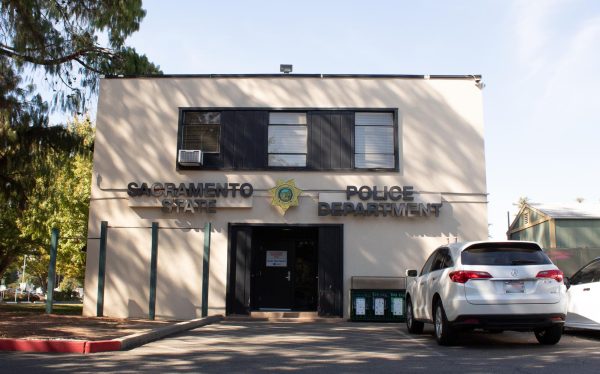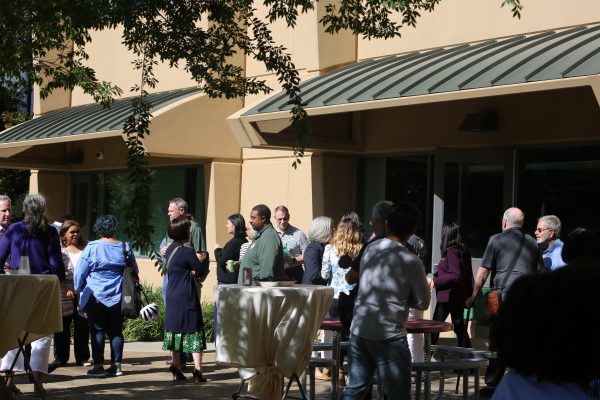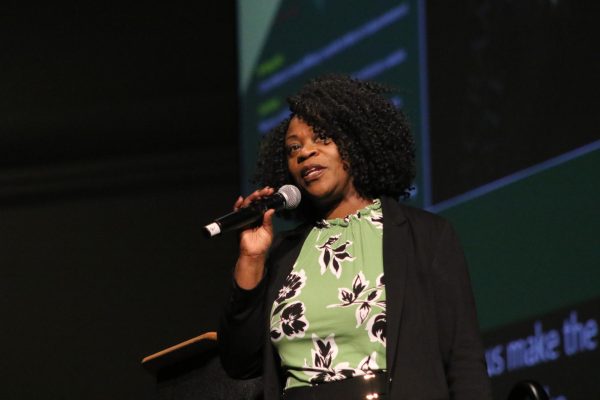Huh? Renaissance Forum tackles memory loss
October 18, 2005
With baby boomers in retirement and the science of the brain hitting newsstands via magazine articles, the urgency to keep the brain active is a priority among seniors, as older individuals fight to ward off Alzheimer’s disease and different forms of dementia.
This is where Alice Jacobs, Ed.D., MS, comes in.
Jacobs, an educational physiologist and pioneer in the field of senior learning, spoke on memory retention Friday afternoon in the University Union’s Hinde Auditorium at Sacramento State. She is the director of Brain Gain, a Granite Bay-based company that offers packaged learning curricula to keep older individuals cognitively active.
“I’m really preaching to the choir here,” Jacobs said. “You truly are, by being members and friends of the Renaissance Society, cutting edge by being in an organization like this.”
The event was part of a weekly series of forums held by the Renaissance Society, a learning partnership between Sacramento’s senior community and the Sac State campus.
Magazines such as Newsweek, Seventeen and even Consumer Reports have recently run articles on increasing brain activity, Jacobs said.
But an interest in the human brain goes back many centuries.
“The technology that we have that enables us to see in the brain has advanced further in the last eight years than it has in the entire history of brain research,” Jacobs said.
And when she polled the audience to find out what year they thought brain research began, many were surprised to hear her answer.
“Most of you thought the 1960s, but it actually started in 400 B.C., by the progressive Greeks,” she said.
The Greeks sharpened rocks, even fashioned their own quasi drill bores, to tunnel into the brains of the deceased to locate the memory.
“Instead they found a brain that is 40 percent fat and 60 percent water,” Jacobs said. The actuality is that the brain is much like the body, so what is good for the body is good for the brain, she said.
“What fuels the brain is glucose from complex carbohydrates,” Jacobs said. “Portion controlled, nutritionally balanced meals are best.”
And plenty of “neurobics” ?” brain exercise ?” to stimulate registration, retention and recognizing, she said.
“The number one problem in America is the registration, we think the information is getting in their but it isn’t,” Jacobs said. “We live in a multi-tasking world and a lot of your memory problems are due to the fact that we have to much going on.”
Jacobs invited the audience to view the U.U. food court after the forum and take notice of all that students are involved in simultaneously. From laptops, to iPods, to cell phones and chatting, there is a lot of activity.
“We can’t focus as well as they can,” she said.
But Jacobs encouraged the audience to find the best way to learn, since each brain is different, and discover how to keep those things in their memory.
“Don’t have a radio or television on when you are trying to memorize something,” she said. “Saying out loud what you want to remember increases your chance of remembering it by 68 percent.”
She also reminded the packed auditorium of the bigger picture.
“We are all pebbles in a pond,” she said. “What we do has waves that affect our families, communities and ultimately the world.”


































































































































